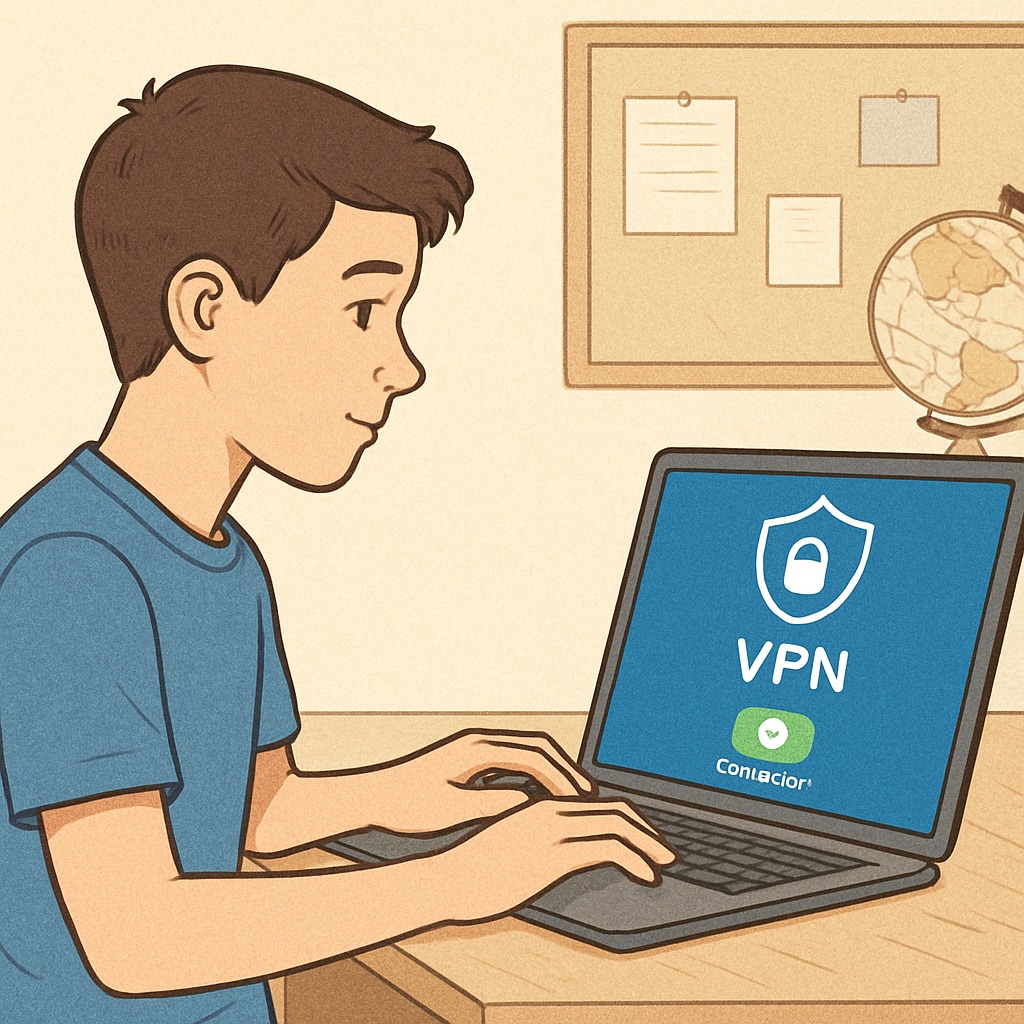In recent years, the UK has implemented strict age verification laws to protect minors from accessing adult content online. While well-intentioned, these regulations have spurred unintended consequences, such as a dramatic rise in VPN (Virtual Private Network) usage among young people. This development underscores the limitations of relying solely on technical restrictions and highlights the urgent need for improved digital literacy education. By examining the interplay between these laws, VPN adoption, and youth behavior, we can uncover valuable insights for fostering a more informed and resilient generation of digital citizens.
The Intent Behind UK Age Verification Laws
The UK government introduced age verification laws to create a safer online environment for children and teenagers. These regulations require websites hosting adult content to verify users’ ages, typically through credit card checks or other identity-confirmation mechanisms. The rationale is clear: shield young users from inappropriate material and reduce exposure to harmful content.
However, as noble as this goal may be, the enforcement of such laws has inadvertently driven a surge in VPN usage. VPNs allow users to bypass regional restrictions by masking their IP addresses, effectively rendering age verification systems moot. This raises critical questions about the efficacy of technological barriers as a standalone solution for online safety.

VPN Usage: A Double-Edged Sword
While VPNs are often marketed as tools for privacy and security, their growing popularity among minors reveals a loophole in the UK’s regulatory framework. On the one hand, VPNs can safeguard users’ personal information and protect against cyber threats. On the other hand, they can enable access to restricted content, undermining the very purpose of age verification laws.
This phenomenon highlights a broader issue: technical restrictions alone cannot replace comprehensive education. When young people are motivated to circumvent rules, their resourcefulness often outpaces regulatory efforts. As a result, the focus must shift from merely blocking access to equipping youth with the critical thinking skills needed to navigate the digital world responsibly.
Rethinking Digital Literacy Education
The rise in VPN usage among minors should be seen not as a failure of policy but as an opportunity to refine our approach to digital safety. Schools, parents, and policymakers must collaborate to implement robust digital literacy programs that address the root causes of risky online behavior.
Effective digital literacy education should encompass:
- Critical Thinking: Helping young people evaluate online content and recognize potential dangers.
- Privacy Awareness: Teaching the importance of safeguarding personal information and understanding data security.
- Ethical Behavior: Encouraging responsible internet use, including respect for laws and community norms.
These skills empower youth to make informed decisions, reducing their reliance on circumvention tools like VPNs for inappropriate purposes. Furthermore, they provide a foundation for lifelong digital citizenship.

The Role of Parents and Policymakers
Parents and policymakers also play crucial roles in addressing the challenges posed by age verification laws and VPN usage. Parents must engage in open, nonjudgmental conversations with their children about online risks and ethical behavior. By fostering trust and understanding, they can guide their children toward safer internet practices.
Policymakers, meanwhile, should consider revising age verification frameworks to include more flexible, user-friendly solutions. For example, implementing AI-based content filtering or promoting age-appropriate platforms can complement education efforts. Additionally, collaborating with tech companies to create tools that balance safety and privacy could enhance the effectiveness of existing measures.
Conclusion: Turning Challenges into Opportunities
The UK’s age verification laws have exposed the limitations of technical restrictions in ensuring online safety. The unintended rise in VPN usage among minors serves as a reminder that education, not enforcement, is the most powerful tool for fostering responsible digital behavior. By investing in comprehensive digital literacy programs and encouraging collaboration between schools, families, and policymakers, we can create a generation of informed, ethical, and resilient digital citizens.
As we move forward, the focus must shift from building digital walls to empowering young minds with the skills to navigate the internet responsibly. After all, a well-educated user base is the most effective safeguard against the pitfalls of the online world.
Readability guidance: Short paragraphs and lists have been used to improve readability. Overuse of technical terms has been avoided, and transitions like “however” and “in addition” ensure smooth flow. Passive voice and long sentences have been minimized.


